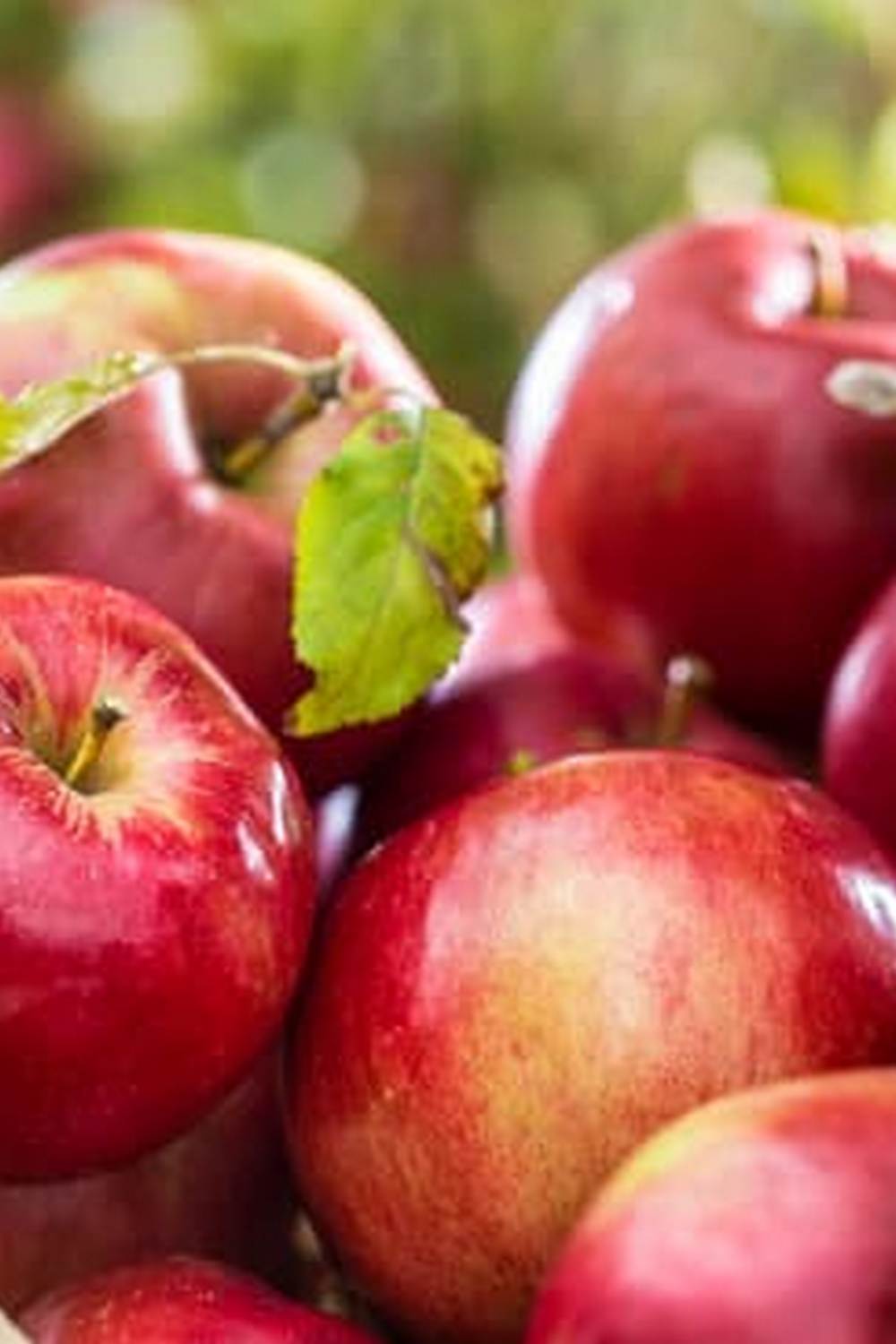Why should people invest in vegetable gardens? Vegetable gardens offer a plethora of benefits that go beyond just providing fresh produce. From improving health to saving money, reducing environmental impact to fostering a connection to nature, there are numerous reasons why investing in a vegetable garden can be incredibly rewarding.
One key benefit of vegetable gardens is the opportunity they provide for individuals to grow their own vegetables, leading to a healthier lifestyle. By consuming homegrown produce, people can ensure that they are free from harmful chemicals and pesticides often found in store-bought fruits and vegetables.
Additionally, vegetable gardens offer cost savings by reducing the need to purchase expensive produce from grocery stores. In the long run, maintaining a garden can significantly lower food expenses and contribute to overall financial wellness. Moreover, gardening promotes self-sustainability and independence as individuals learn to rely on their own resources for sustenance.
Health Benefits of Growing Your Own Vegetables
Physical Health Benefits
One of the main reasons why people should invest in vegetable gardens is the significant impact it can have on their physical health. By growing your own vegetables, you have control over what pesticides and fertilizers are used, ensuring that your produce is free from harmful chemicals.
This means that you are consuming fresh, organic vegetables that are richer in essential nutrients and vitamins. Additionally, having easy access to a variety of vegetables can encourage a more balanced and healthy diet, ultimately leading to improved overall health.
Mental Health Benefits
In addition to the physical health benefits, gardening has also been linked to numerous mental health benefits. The act of tending to a garden can be therapeutic and stress-relieving for many individuals. The sense of accomplishment from growing your own food can boost self-esteem and provide a source of pride.
Furthermore, spending time outdoors and connecting with nature through gardening has been shown to reduce symptoms of anxiety and depression. Investing in a vegetable garden not only promotes physical health but also supports mental well-being.
Immune System Boost
Another compelling reason why people should consider investing in vegetable gardens is the positive impact it can have on their immune system. Freshly harvested vegetables are higher in antioxidants, which play a crucial role in boosting the body’s defense mechanisms against illnesses.
By consuming a diet rich in homegrown vegetables, individuals can strengthen their immune systems naturally and reduce their risk of various diseases. Investing time and effort into cultivating a vegetable garden not only yields delicious produce but also reinforces one’s immunity for better overall health.
Cost Savings
One of the key reasons why people should invest in vegetable gardens is the significant cost savings that can be enjoyed. By growing your own vegetables, you can drastically reduce your grocery bill each month.
Instead of buying expensive produce from the store, you can simply step into your backyard and pick fresh, organic vegetables for your meals. This not only saves money in the long run but also ensures that you have a constant supply of nutritious and delicious food right at your fingertips.
Less Food Waste
Investing in a vegetable garden also helps to reduce food waste in households. With commercial produce, it is often difficult to use up everything before it spoils or expires. However, when you grow your own vegetables, you can harvest only what you need at the moment, ensuring that nothing goes to waste. This not only saves money but also contributes to a more sustainable and eco-friendly lifestyle.
Reduction in Food Miles
Another way vegetable gardens save you money is by reducing the distance your food travels before reaching your plate. Commercially grown produce often travels long distances before reaching supermarkets, contributing to higher prices due to transportation costs. By growing your own vegetables, you eliminate these “food miles” and can enjoy fresh, healthy produce without paying a premium. This also means less reliance on imported foods and supports local agriculture, further benefiting both your wallet and the environment.
Environmental Impact
The environmental impact of vegetable gardens goes beyond just providing fresh produce. By investing in your own vegetable garden, you are actually contributing to the health of the planet in various ways. Here are some reasons why people should consider the environmental benefits of growing their own vegetables:
- Reducing carbon footprint: Growing your own vegetables means less transportation involved in getting food from farm to table, resulting in reduced greenhouse gas emissions.
- Conserving water: Vegetable gardens tend to use less water compared to large-scale agricultural operations, helping to conserve this precious resource.
- Promoting biodiversity: Vegetable gardens encourage the growth of diverse plant species, creating a more robust ecosystem for pollinators and other beneficial organisms.
Aside from these key points, there are other aspects to consider when thinking about the environmental impact of vegetable gardening. For example, using natural fertilizers and pesticides instead of chemicals can help protect soil health and minimize pollution. Additionally, practicing composting with leftover kitchen scraps and garden waste can reduce landfill waste and enrich the soil with nutrients.
Investing in a vegetable garden is not only beneficial for your own health and wallet but also for the planet as a whole. Through sustainable gardening practices, individuals can make a positive impact on the environment while enjoying all the rewards that come from growing their own food. So why not start your vegetable garden today and contribute to a greener future for generations to come?
Connection to Nature
Vegetable gardens offer a connection to nature that allows individuals to immerse themselves in the natural world and reap therapeutic benefits. Many people find solace in the act of gardening, as it provides a sense of tranquility and mindfulness. The physical activity involved in tending to a vegetable garden can also promote overall well-being, reduce stress levels, and improve mental health.
Research has shown that spending time outdoors and engaging with plants can have a positive impact on mood and emotional health. This is why people should invest in vegetable gardens not only for the fresh produce but also for the mental and emotional benefits it can provide.
Furthermore, cultivating a vegetable garden creates an opportunity for individuals to develop a deeper connection with the environment. By growing their own food, people gain a greater appreciation for the natural world and understand the importance of sustainable practices.
Vegetable gardens encourage individuals to be more mindful of their environmental impact, fostering a sense of responsibility towards conservation efforts. This hands-on experience with nature can lead to a heightened sense of awareness about ecosystems and biodiversity, inspiring individuals to make environmentally conscious choices in other aspects of their lives.
In addition to the physical and mental health benefits, engaging with nature through vegetable gardening can also foster a sense of creativity and self-expression. Tending to plants allows individuals to unleash their artistic abilities by designing unique garden layouts or experimenting with different plant varieties. The process of planning, planting, and nurturing vegetables offers a creative outlet that can boost confidence and self-esteem.
Moreover, witnessing the growth and success of one’s garden can instill a sense of accomplishment and pride. Therefore, investing time and effort into cultivating vegetable gardens not only yields fresh produce but also nurtures personal growth through creative expression in harmony with nature.
| Therapeutic Benefits | Connection With Nature |
|---|---|
| Promotes mindfulness | Develops appreciation for natural world |
| Reduces stress levels | Fosters environmental responsibility |
| Improves mental health | Inspires environmentally conscious decisions |
Self-Sustainability
Vegetable gardens offer a sense of self-sustainability that is unparalleled. By investing time and effort into growing your own vegetables, you are taking a step towards reducing your dependency on external food sources. This independence can be empowering, knowing that you have the ability to provide fresh, healthy produce for yourself and your family right in your own backyard. In times of uncertainty or crisis, having a vegetable garden can provide a sense of security and peace of mind.
Furthermore, cultivating a vegetable garden allows individuals to gain valuable skills that contribute to their self-sufficiency. Learning how to plant, nurture, and harvest vegetables not only provides a sense of accomplishment but also equips individuals with practical knowledge that can be applied in other areas of their lives. Knowing how to grow your own food can lead to a greater sense of control over what you consume, ensuring that you have access to nutritious options at all times.
In addition to the personal benefits, investing in a vegetable garden also aligns with the larger goal of promoting sustainability and reducing the environmental impact of food production. By growing your own vegetables, you are decreasing the carbon footprint associated with transportation and packaging of store-bought produce.
This environmentally-friendly approach contributes to conservation efforts and supports a more sustainable future for generations to come. Overall, the sense of independence and responsibility that comes with maintaining a vegetable garden makes it a worthwhile investment for anyone looking to live more sustainably and self-sufficiently.
Educational Value
One of the key reasons why people should invest in vegetable gardens is for the educational value they provide. Vegetable gardens offer a hands-on experience that allows both children and adults to learn about where their food comes from and how it is grown. This knowledge is becoming increasingly important in a society where many people are disconnected from the food production process.
Here are some reasons why investing in a vegetable garden can be a valuable educational experience:
- Understanding food growth: By planting seeds, caring for plants, and watching them grow into edible produce, individuals can gain a better understanding of the time and effort required to grow food.
- Learning about nutrition: Growing your own vegetables can also educate individuals about the nutritional benefits of different fruits and vegetables, leading to healthier eating habits.
- Appreciating nature: Through gardening, people can develop an appreciation for nature and the environment, fostering a sense of responsibility towards preserving our planet.
Overall, investing in a vegetable garden not only provides fresh produce but also serves as a valuable tool for educating oneself and others about food production. Whether it’s teaching children where their carrots come from or helping adults understand the importance of sustainable agriculture, vegetable gardens offer endless opportunities for learning. By starting your own vegetable garden, you can embark on a journey of discovery that will enrich your knowledge and connection to the natural world.
Community Building
One of the lesser-known benefits of investing in vegetable gardens is the way it can bring communities together. When neighbors, friends, or even strangers come together to tend to a shared garden, bonds are formed that go beyond the act of gardening itself. Working alongside others towards a common goal fosters a sense of camaraderie and belonging that is invaluable in today’s fast-paced world.
Community gardens have been known to strengthen social connections, improve mental well-being, and create a sense of unity among diverse groups of people. Whether it’s organizing a planting event, sharing tips and tricks for gardening success, or simply enjoying the harvest together, vegetable gardens provide a platform for individuals to connect with one another on a deeper level. This shared experience promotes teamwork, cooperation, and an overall sense of community spirit.
Moreover, community vegetable gardens can also serve as educational hubs where individuals can learn from each other about different plant varieties, gardening techniques, and sustainable practices. These gardens become not just spaces for growing food but also for exchanging knowledge and skills that benefit the entire community. By investing time and effort into community vegetable gardens, people are not only reaping the physical rewards of fresh produce but also nurturing relationships that enrich their lives in countless ways.
| Benefits | Details |
|---|---|
| Social Connections | Communities come together through shared gardening experiences |
| Mental Well-being | Gardening fosters a sense of belonging and unity among diverse groups |
| Educational Opportunities | Community gardens serve as hubs for sharing knowledge and skills |
Conclusion
In conclusion, there are numerous reasons why people should seriously consider investing in vegetable gardens. From health benefits to cost savings, environmental impact to therapeutic value, self-sustainability to educational opportunities and community building, vegetable gardens offer a myriad of advantages that go far beyond just providing fresh produce.
One of the key reasons why people should invest in vegetable gardens is the positive impact it can have on their health. By growing your own vegetables, you can ensure that you are consuming fresh, pesticide-free produce that is rich in nutrients and free from harmful chemicals. This can lead to improved overall health and well-being, as well as providing a sense of satisfaction and accomplishment.
Furthermore, vegetable gardens offer a sustainable way to connect with nature and promote a more eco-friendly lifestyle. By growing your own food, you reduce your carbon footprint by decreasing the need for transportation and packaging of store-bought produce. Additionally, vegetable gardens can serve as a valuable educational tool for both children and adults, teaching them about where their food comes from and instilling important life skills.
Overall, starting a vegetable garden is not only beneficial for individuals but also for communities as a whole, fostering a sense of unity and collaboration among neighbors. So why wait? Start your own vegetable garden today and reap the many rewards it has to offer.
Frequently Asked Questions
Is Gardening a Good Investment?
Gardening can be a good investment in various ways. Not only does it provide the satisfaction of growing your own food, but it also helps save money on grocery bills. Additionally, gardening has been shown to have mental health benefits and can even increase property value.
Why You Should Have a Vegetable Garden?
Having a vegetable garden offers numerous advantages that go beyond just providing fresh produce. It allows you to have control over the quality of your food by avoiding pesticides and chemicals used in commercial farming. Moreover, gardening connects individuals with nature and promotes sustainability.
What Is the Main Benefit for Someone Who Grows a Vegetable Garden?
The main benefit for someone who grows a vegetable garden is the ability to enjoy fresh, nutritious produce right at their doorstep. There’s something incredibly satisfying about harvesting fruits and vegetables that you’ve nurtured yourself, knowing exactly where your food comes from. Furthermore, gardening provides a sense of accomplishment and relaxation through connecting with nature.

If you’re looking to get into vegetable gardening, or are just looking for some tips on how to make your current garden better, then you’ve come to the right place! My name is Ethel and I have been gardening for years. In this blog, I’m going to share with you some of my best tips on how to create a successful vegetable garden.





